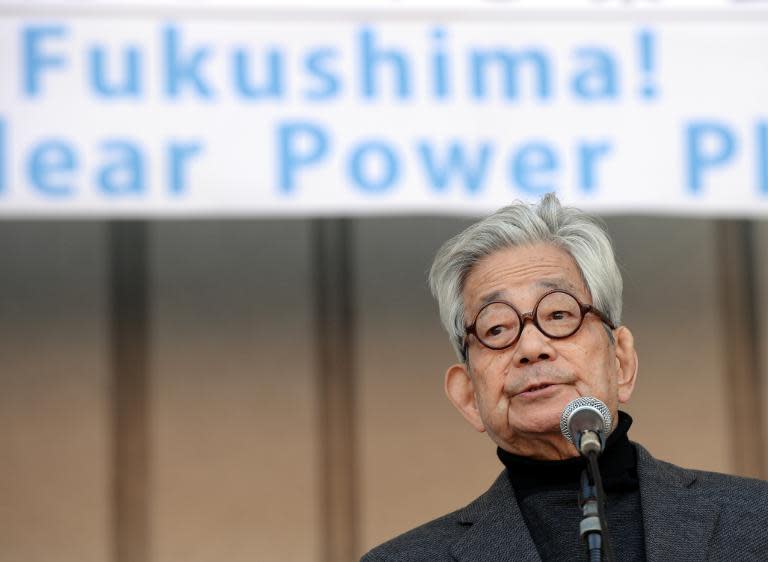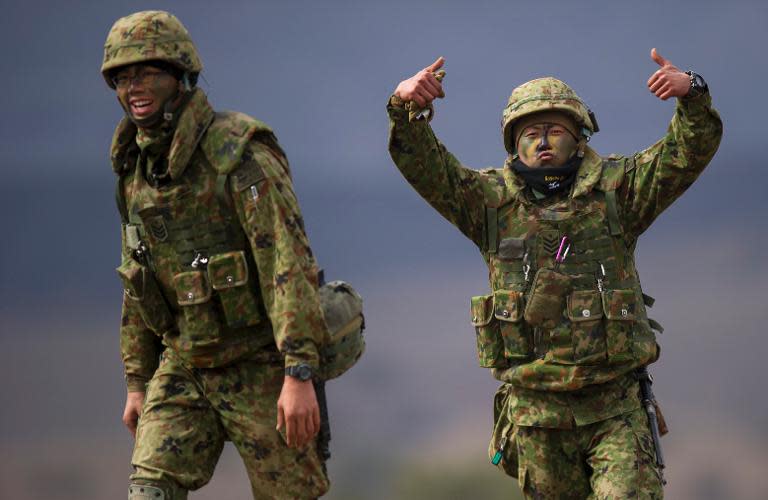Japan pacifists rally amid uneasiness over military
Some 3,000 people rallied Tuesday in a Tokyo park against government plans to soften Japan's constitutional commitment to pacifism and give its military a more active role. The protest came after a national opinion poll showed growing public opposition to Prime Minister Shinzo Abe's push to bolster his nation's military. He has argued that Japan needs to reinterpret its post-war pacifist constitution to permit "collective defence" -- coming to the aid of an ally under attack. That is not allowed under current readings of Article 9 of the US-imposed document, which says Japan forever renounces the use of force as a means of settling international disputes. Previous governments have held that this means Japan's military may only open fire if fired upon, even if that entails leaving US counterparts in danger on the same battlefield. "By exercising the collective self-defence, Japan will directly participate in a war," Nobel Literature laureate Kenzaburo Oe told the rally. "I'm afraid that Japan's spirit is approaching the most dangerous stage over the past 100 years," Oe said before the demonstrators were due to march in central Tokyo. The liberal Asahi Shimbun reported that a poll of more than 2,000 adults nationwide showed 63 percent oppose the concept of collective defence. That was up from 56 percent last year and more than double the 29 percent who support the idea. The percentage of those against revising Article 9 rose to 64 percent from 52 percent, the paper said in the poll published Monday. Abe's drive to strengthen the military provokes disquiet in China and on the Korean peninsula, where memories linger of Tokyo's brutal expansionism last century. However, his position is welcomed in Washington, where there have long been calls for Japan to pull its own weight in a very one-sided security alliance. Unease in Japan about China's increasing assertiveness, and specifically its strident claims to disputed islands in the East China Sea, has helped bolster Abe's push to enhance the role of the military.




